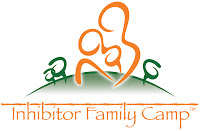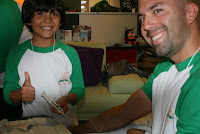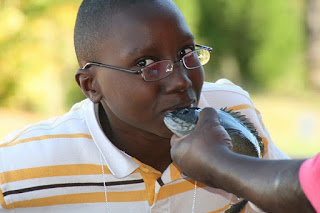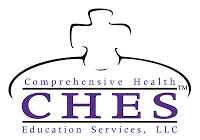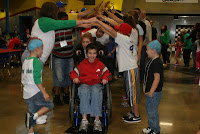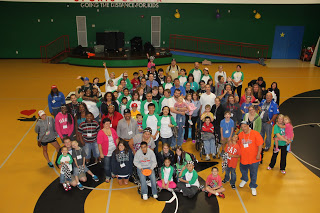A Camp to Call Their Own
By Janet Brewer
The bleeding
disorder community is small, comparatively speaking. Smaller still is the community of families and individuals affected by an inhibitor. But what we lack in size, we make up in our voices.
disorder community is small, comparatively speaking. Smaller still is the community of families and individuals affected by an inhibitor. But what we lack in size, we make up in our voices.
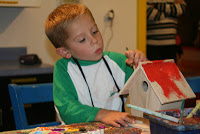 The hemophilia community has advocated for better care, better products and better programs to support our daily needs. As a result, we have arguably the best treatment model in the world. In the last 20 to 30 years, hemophilia has realized a standard of care that involves routine prophylaxis. This 2-3 day per week regiment enables most affected by hemophilia to lead a relatively “normal” life. Annual chapter meetings, national education conferences offer a plethora
The hemophilia community has advocated for better care, better products and better programs to support our daily needs. As a result, we have arguably the best treatment model in the world. In the last 20 to 30 years, hemophilia has realized a standard of care that involves routine prophylaxis. This 2-3 day per week regiment enables most affected by hemophilia to lead a relatively “normal” life. Annual chapter meetings, national education conferences offer a plethoraof information specific to those living with hemophilia. Week long summer camp programs where self-infusion is taught and opportunities to meet peers in an environment that promotes leadership are a right of passage for our community.
Yet the smaller subset of individuals and families affected by an inhibitor continues to struggle. An inhibitor diagnosis changes the entire landscape of hemophilia treatment. Routine prophylaxis becomes a thing of the past until the inhibitor is tolerized. Immune tolerance treatment (ITT) can take years of daily, sometimes twice daily infusions and even then, not every child becomes tolerized. There is no single factor product that works to stop bleeding consistently. Bleeds can take days, even weeks to stop. Hospitalizations are frequent and family life is turned upside. Attending a weeklong hemophilia summer camp often becomes a wish. When attendance is possible, there is a high probability that there won’t be anyone else there with an inhibitor. Participating
in many of the activities that other blood brothers can do with prophylaxis is impossible.
As one camper with an inhibitor states, “How I envied them and wished I could
do what they could do.”
in many of the activities that other blood brothers can do with prophylaxis is impossible.
As one camper with an inhibitor states, “How I envied them and wished I could
do what they could do.”
Jane Cavanaugh Smith and Janet Brewer conceived the idea for Inhibitor Family Camp. As long standing members of the hemophilia community and mothers of sons with an inhibitor, they endeavored to bring families affected by an inhibitor together in an activity filled, intimate environment and where better than camp? The very nature of a camp setting provides opportunities to try things for the first time, stretch ones limits and create peer relationships.
In 2010, Comprehensive Health Education Services (CHES) sponsored the very first Inhibitor Family Camp at Victory Junction in North Carolina. For the first time, children with an inhibitor and their families had a camp to call their own. Supported by an educational grant from Novo Nordisk, its goal then and still is to bring together families who continue to struggle with the challenge
of an active inhibitor. Families of a child whose inhibitor has tolerized are welcome if space allows. With camp now in its third year, CHES has partnered with Serious Fun camps (founded by Paul Newman), The Painted Turtle in California and Victory Junction in North Carolina to bring two Inhibitor Family Camp programs to the inhibitor community. In response to participant requests, this year’s camp program will offer three nights of education, activities and fun!
of an active inhibitor. Families of a child whose inhibitor has tolerized are welcome if space allows. With camp now in its third year, CHES has partnered with Serious Fun camps (founded by Paul Newman), The Painted Turtle in California and Victory Junction in North Carolina to bring two Inhibitor Family Camp programs to the inhibitor community. In response to participant requests, this year’s camp program will offer three nights of education, activities and fun!
Inhibitor Family Camp is limited to 25 families per camp and slots fill up quickly. The Painted
Turtle session will be held Friday April 19 to Monday April 22, 2013 in Lake Hughes, California. Registration opens on January 4, 2013. The Victory Junction session will be held Thursday October 17-Sunday October 20, 2013 in Randleman, NC. Registration will open on July 1, 2013. Each of these programs are offered totally free of charge to eligible families.
Turtle session will be held Friday April 19 to Monday April 22, 2013 in Lake Hughes, California. Registration opens on January 4, 2013. The Victory Junction session will be held Thursday October 17-Sunday October 20, 2013 in Randleman, NC. Registration will open on July 1, 2013. Each of these programs are offered totally free of charge to eligible families.
“I loved all the activities. Lots of things to do. The boys had a wonderful time. I have no
complaints except we didn’t want to leave! Thank you!”
complaints except we didn’t want to leave! Thank you!”
“Hanging with the other kids and connecting with them through similar experiences.”
“This program has been fully instrumental to my family in helping us deal with hemophilia and inhibitors.”
For additional information,
please call Comprehensive Health Education Services at 781-878-8561.
please call Comprehensive Health Education Services at 781-878-8561.
Click below to view Comprehensive Health Education
Services’ Inhibitor Family Camp Brochure http://attachment.benchmarkemail.com/c51644/2013_Inhibitor_Family_Camp.pdf
Services’ Inhibitor Family Camp Brochure http://attachment.benchmarkemail.com/c51644/2013_Inhibitor_Family_Camp.pdf

